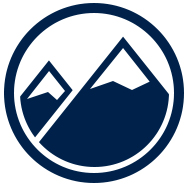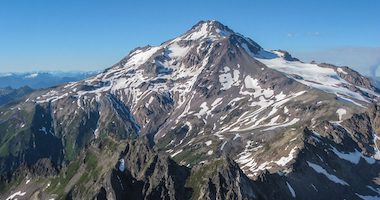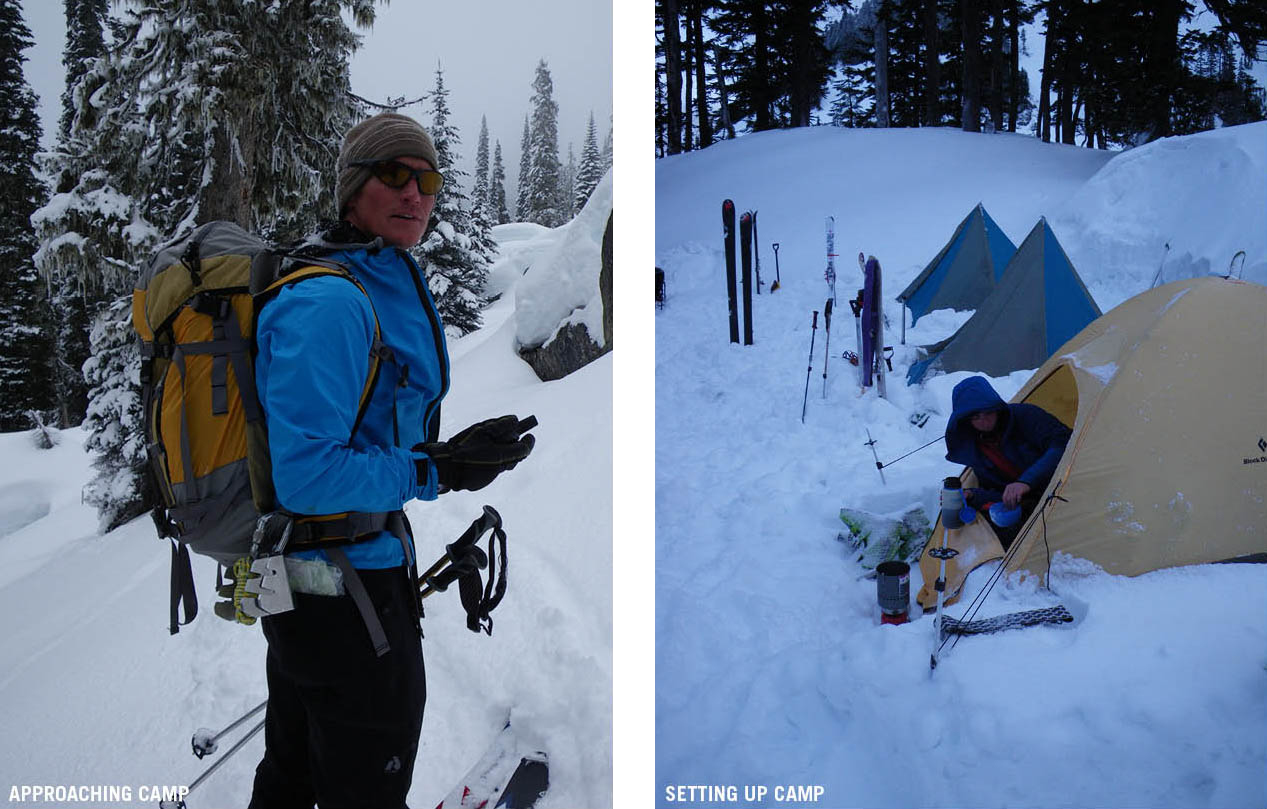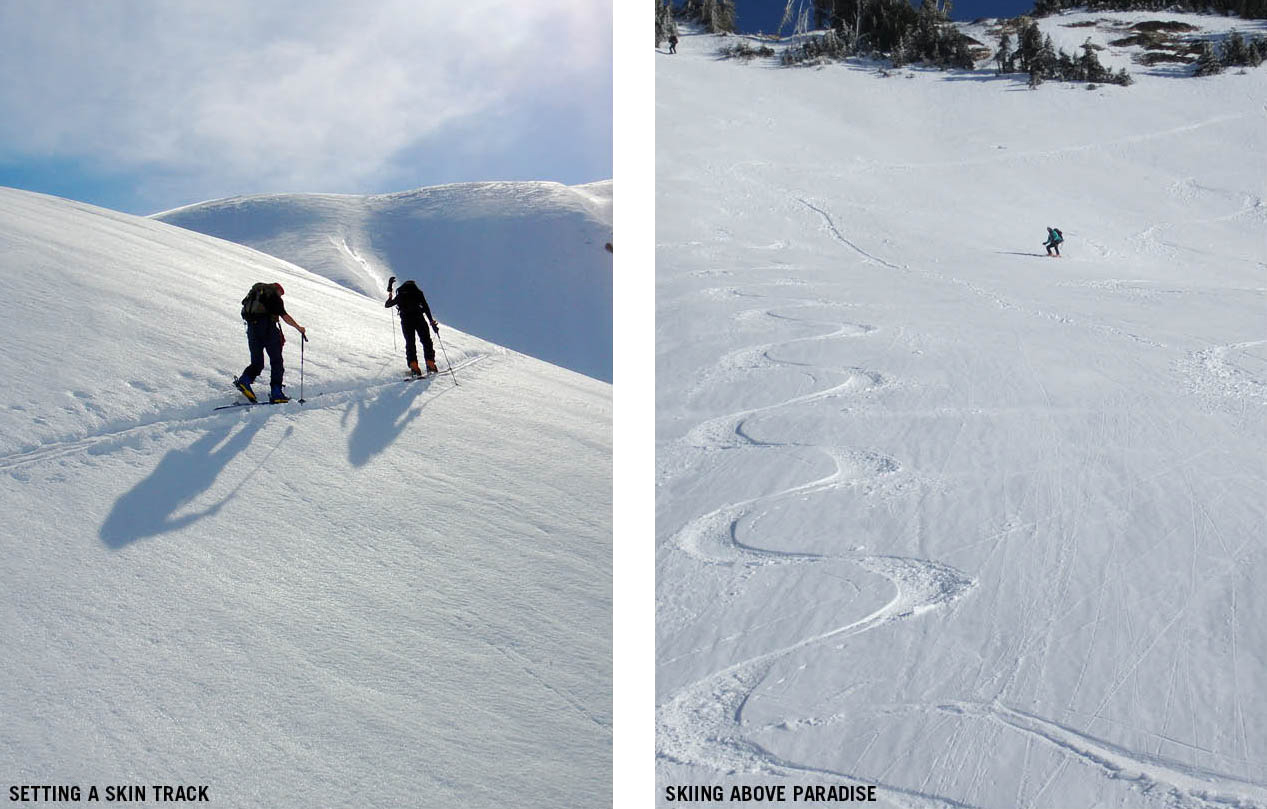Travel Consultant
RMI has partnered with Erin Rountree to provide comprehensive travel support. We have been working with Erin for many years. As an independent agent of the Travel Society, she has booked countless miles for adventure travelers across the globe and is extremely knowledgeable about the travel needs of our programs. Please call (208) 788-2870 or send email to [email protected].
Travel Insurance
We highly recommend travel insurance for this trip. Your travel insurance policy should include trip cancellation, trip interruption, travel delay, baggage loss or delay, medical expenses, and evacuation.
Navigating through the different options for travel insurance can be challenging. When purchasing Travel Insurance, here are a few items to consider:
- Read the fine print. Travel Insurance offers reimbursement when you must cancel your trip for an eligible reason for prepaid, non-refundable trip costs that you insure. However, there are exclusions, so make sure you understand the "eligible reasons."
- Confirm that your activity is an eligible "activity." Not all travel insurance policies will offer coverage for activities such as mountaineering, climbing, skiing, or trekking adventures. Policies can also exclude coverage for activities due to the gear used (crampons, ice axe), activities that go above specific elevations, or activities in a particular region of the world. If there are exclusions, you may need to add an "Adventure" or "Sports" package to help cover your activity.
- Verify that your state of residence is allowed with the policy that you are purchasing. Not all insurance companies offer policies in all 50 states.
- Contact your travel protection company directly for any questions you have regarding benefits or coverage.
TRAVELEX
In today’s changing travel environment, it’s important to protect your travel investment. Unforeseen events such as flight delays, baggage loss or even a sudden sickness or injury could impact your travel plans. For your convenience, we offer Travelex Insurance protection plans to help protect you and your travel investment against the unexpected.
For more information on the available plans visit Travelex Insurance Services or contact Travelex Insurance (800) 228-9792 and reference location number 47-0370.
The product descriptions provided here are only brief summaries and may be changed without notice. The full coverage terms and details, including limitations and exclusions, are contained in the insurance policy. Travelex Insurance Services, Inc. CA Agency License #0D10209. Insurance coverages underwritten by individual member companies of Zurich in North America, including Zurich American Insurance Company (NAIC #16535, state of domicile: New York). RETWEB
harbor
Harbor Travel Insurance covers the following critical benefits:
- Evacuation to a nearest appropriate hospital once hospitalized.
- Trip cancellation/interruption, primary medical expense coverage, sporting goods, baggage loss, emergency dental, AD&D, and more.
- Completely integrated one-stop program with a single contact for emergency services to travel assistance and insurance claims
- 24/7 access to paramedics, nurses, and military veterans.
Harbor Travel Insurance is powered by Redpoint Resolutions, a medical and travel security risk company. Their team is comprised of special operations veterans, paramedics, Stanford Medicine affiliated physicians, former intelligence officers, insurance actuaries, and global security experts with dozens of years of experience in theaters around the world. The Redpoint network covers the globe, making them uniquely equipped to provide elite rescue travel insurance – in every sense of the word.
Getting There
Rainier BaseCamp is located in Ashford, WA and is the home of RMI Expeditions, Whittaker Mountaineering, Whittaker’s Bunkhouse, and Mt. Rainier Visitor Center. Ashford is located 75 miles from the Sea-Tac Airport.
Note: Beginning May 7, 2025, every air traveler 18 years of age and older will need a REAL ID compliant driver’s license, state-issued enhanced driver’s license, or another acceptable form of ID to fly within the United States.
Most climbers traveling to Ashford in winter will want to rent a car. This is the most convenient and reliable way to get here.
Ride Share: If you are interested in sharing a ride, please go to your RMI Account, then to "Discussion Board" and "Ride Share" to post your information.
Other transportation options are:
Keven - Tacoma Yellow Cab
Phone: 253-678-2631
Email: [email protected]
Seattle Airport Car Service
Phone: 206-375-4000
Email: [email protected]
Ashford Area Accommodations
The Hideaway Tiny House
The Overlook
Whittaker's Motel and Historic Bunkhouse | 360-569-2439
Nisqually Lodge | 360-569-8804
Alexander's Lodge | 360-569-2300
Wellspring Spa & Cabins | 360-569-2514
Guest Services Inc: (Paradise Inn and National Park Inn) | 253-569-2275
Mt. Rainier Visitor Association | 360-569-0910
Camping
You may also go to VisitRainier.com to search for accommodations in the Ashford Area.
Weather
For updated Mt. Rainier weather forecasts, click here.
Please click on the links below to see the Mt. Rainier webcams:
- Paradise view towards Mount Rainier
- Paradise view - East
- Paradise view - West
- Paradise view towards the Tatoosh Range
- Longmire view
- Air Quality Camera
Tipping
Our guides put considerable effort into ensuring your safety and success on the mountain. If you had a positive experience, leaving a gratuity is a wonderful gesture to show your appreciation. The amount is up to you and should reflect how much you enjoyed the service. Typically, tips for excellent service range from 10% to 15% of the program cost. Guides can accept gratuities in cash, Venmo, or by check. If you prefer, you can also pay tips using a credit card through the RMI Office.
Facts
Mt Rainier became the nation's fifth National Park in 1899, some twenty-nine years after it was first climbed. Mt. Rainier National Park encompasses 235,625 acres and is 97% wilderness and 3% National Historic Landmark District. Mt. Rainier, at 14,410', is the most prominent peak in the Cascade Range. It is a dormant volcano that last erupted approximately 150 years ago.
Guided mountaineering activity has taken place from the late 1800's, and The Mountain is still considered a prime training ground for climbing in Alaska, South America and the Himalayas. With more than 20 active glaciers encompassing some 36 square miles of ice, Rainier boasts the largest ice cover of any peak in the lower 48 United States. Its weather can be deceptively gentle or as fierce as encountered on any high mountain anywhere in the world. There is a wealth of information on the Mt. Rainier National Park website. We encourage you to enhance your enjoyment of the climb with some fun facts about the Park and history of climbing there.
Resources
General Information on Mt. Rainier National Park (MRNP)
www.nps.gov/mora
The Mountaineers Book - www.mountaineersbooks.org
Gateway Communities & Activities outside Mt. Rainier National Park
www.visitrainier.com
Recommended Reading
The Challenge of Rainier, by Dee Molenaar
Mt. Rainier - A Climbing Guide, by Mike Gauthier
Mt. Rainier: The Story Behind the Scenery, by Ray Snow
National Geographic Trails Illustrated MRNP topo map
Qualifications
This trip is open to all individuals in excellent physical condition with intermediate to advanced skiing skills. The ability to comfortably ski moderate, ungroomed terrain in ski areas is required.

Get In The Best Shape Of Your Life And Then Go Climb A Mountain
Create A Fitness And Training Program
Physical Fitness Training
Mountaineering requires a high degree of physical stamina and mental toughness. Even for the healthiest and fittest individuals, climbing mountains qualifies as an extremely challenging endeavor.
- Start immediately. Start a rigorous fitness and training program now with the goal of arriving in top physical condition and confident in your skills.
- Be intentional. Focus on gaining the necessary strength, stamina and skills to meet the physical and technical demands of the climb.
- Be sport-specific. The best fitness and training program mimics the physical and technical demands of your climbing objective. The closer you get to your program date, the more your training should resemble the climbing.
For the Backcountry Ski Course, you are preparing for:
- Skiing into a base camp with a 45-50 lb. load
- Ski touring with a 20-25 lb. load
Nothing ensures a personally successful adventure like your level of fitness and training. Bottom line: Plan on being in the best shape of your life and ready for a very challenging adventure!
Below are approximate outlines of the program's physical demands that will be helpful in planning your training schedule and goals:
|
Total Skiing Time
|
Elevation Gain / Loss
|
Total Distance
|
Pack Weight
|
| DAY 1 | |||
|
n/a
|
n/a
|
n/a
|
n/a
|
| DAY 2 | |||
|
3 - 4 Hours
|
Gain = 2,000'
Loss = 1,000' |
4 Miles
|
40 lb.
|
| DAY 3 | |||
|
6 Hours
|
Gain = 2,500'
Loss = 2,500' |
4 Miles
|
20 - 25 lb.
|
| DAY 4 | |||
|
5 - 7 Hours
|
Gain = 1,000'
|
1.5 Miles
|
20 - 25 lb.
|
| DAY 5 | |||
|
8 + Hours
Round Trip
|
Gain = 3,500'
Loss = 4,500' |
8 Miles
Round Trip
|
20 - 25 lb.
|
Please refer to our Resources for Mountaineering Fitness and Training for detailed fitness and training information.
Acclimatization
No acclimatization is necessary for this program.
What You’ll Need
A list of required personal equipment accompanies every RMI program, and the thought process behind each item is much greater than simply “preparing for the worst and hoping for the best.” The list for your program takes into account factors such as: seasonality, route conditions, weather, elevation and more. As such, this list is framed within the broadest of contexts and is dynamic by its very nature. Therefore, certain variables (additions and/or subtractions) are inherent within such an all-encompassing list. We make every effort to recommend only top of the line clothing and technical gear and it is never our intention for you to buy or rent unnecessary gear.
The Guide Pick is an example of the listed item, giving you an idea of the material and specifications of the item. This exact item does not need to be purchased or used; however, any item you choose must have similar characteristics and performance abilities to the Guide Pick.
RMI Guides concur on the potential necessity of every item, thus every item on the list is required at gear check. However, guides may also have suggestions derived from their experience, some of which will vary from a given list. The guides’ recommendation whether to bring along or leave behind certain item(s) comes during the gear check, when the team first meets. Occasionally this recommendation comes at the expense of having previously purchased an item. If a guide presents the option of leaving behind certain item(s) on the list of required equipment, it is for a reason. Their recommendation may be related to the weather, route conditions, freezing level, perceived strength of the party, or desired pack weight.
Ultimately, there will never be a consensus for a “perfect” equipment list for an ascent. It does not exist because of the multitude of variables faced by climbers throughout the climb. Please follow this equipment list closely so that you will arrive for the gear check with all the required items. Keep in mind the list is not black and white, fine tuning will occur once you meet with your guide. Have a great climb!
-
 Most of the required equipment is available for rent or purchase from our affiliate Whittaker Mountaineering. RMI climbers receive a 10% discount on new clothing and equipment items ordered from Whittaker Mountaineering.
Most of the required equipment is available for rent or purchase from our affiliate Whittaker Mountaineering. RMI climbers receive a 10% discount on new clothing and equipment items ordered from Whittaker Mountaineering.
Shop Your Equipment List // Rent new equipment for your climb
Equipment List
Pack & Travel
We recommend traveling with a ski bag large enough to accommodate skis, poles, and extra gear that might not fit in your duffel.
A strapping system to hold your skis is a nice feature.
An optional item for use on the ski tours above camp. It should be large enough to carry food, water, clothing, and rescue gear for the day. A strapping system for carrying skis is a nice feature.
Sleeping Bag & Pad
We recommend a bag rated between 0° and -20° F. Allow ample room for movement. We recommend down over synthetic for its light weight, warmth, and packability. If you know you sleep cold, consider a -20° F bag.
A full-length inflatable pad.
A full-length closed cell foam pad, used in combination with the inflatable sleeping pad.
Technical Gear
We recommend a short, lightweight ice axe designed for ski touring and ski mountaineering. If you already own a general-pupose ice axe this will work as well.
Bring extra batteries appropriate to the duration of the climb.
All skis and boards need to have brakes or retention straps. We strongly recommend having a tech binding on your skis. Not a 50/50 binding.
A crampon specific to your ski binding which is used for ascending firm slopes with skis on.
Head
A UIAA (Union Internationale des Associations d’Alpinisme) or CE (European Committee for Standardization) certified climbing helmet or a ski mountaineering helmet rated from both rock fall and skiing falls. Standard ski helmets are not acceptable. They are not rated for rockfall and are too warm to be worn during ascents.
Wool or synthetic. It should provide warmth but also be thin enough to fit underneath a climbing helmet.
A Buff provides versatile head and neck protection. A neck gaiter is also acceptable.
Start with fresh batteries and bring extra set(s) of batteries appropriate to the duration of the trip.
Glacier glasses are protective sunglasses that provide close to 100% frame coverage (wrap-around frames and side shields ensure no light can enter from the top, bottom, and sides of the glasses) and transmit less than 10% of visual light.
Amber or rose-tinted goggles for adverse weather. On windy days, climbers, especially contact lens wearers, may find photochromatic lenses the most versatile in a variety of light conditions.
Hands
Each glove layer is worn separately as conditions change during the climb.
Light weight liner or softshell gloves. Lighter colors absorb less sunlight while still offering UV protection.
Wind- and water-resistant, insulated mountain gloves.
Wind- and water-resistant, insulated gloves or mittens. These also serve as emergency backups if you drop or lose a lighter-weight glove.
Upper Body
We recommend a minimum of five upper body layers, all of which can be used in conjunction with each other. Two of these should be insulating layers, one light, and one medium, that fit well together. Today there are many different layering systems to choose from, including fleece, softshell, down, and synthetic options.
Long-sleeve wool or synthetic top. Light weight, light-colored, hooded baselayers (sun hoodys) are highly recommended for sun protection.
One step up in warmth and bulk from a baselayer. A technical fleece makes an ideal light weight insulating layer.
A down, synthetic, or softshell hoody makes a great midlayer.
An uninsulated, waterproof shell jacket with hood.
Your expedition-style heavy parka must extend below the waist, have an insulated hood, and be able to fit over the rest of your upper body layers. While the parka is worn primarily at rest breaks on summit day, it also serves as an emergency garment if needed. We recommend down rather than synthetic fill.
We recommend a moisture-wicking, active-wear bra.
Lower Body
Non-cotton briefs or boxers.
Synthetic or wool.
A lightweight, well ventilated soft-shell or hard-shell ski or climbing pant that fits over the cuff of your ski boots.
Feet
Whether used for Alpine Touring, Telemark, or Snowboard, your boots should be of a design that allows climbing crampons, and is sturdy enough for variable snow conditions. Please call our office to speak with a guide about ski and snowboard boot recommendations.
Either wool or synthetic. Whatever sock combination you are accustomed to wearing during your training or previous adventures (whether single medium weight socks, a medium weight with a liner sock, two medium weight socks together, etc.), should work just fine for this climb.
First Aid & Medications
Our guides carry comprehensive medical kits, so keep yours small and light. We recommend a selection of adhesive bandages, antibiotic ointment, Moleskin and blister care, medical tape and/or duct tape, basic pain reliever, and personal medications.
Personal Items
You are responsible for providing your own meals and snack food in town and while on Mt. Rainier. See the Food tab for suggestions and quantities.
Packable plastic bowl. Collapsable models can work but must be handled carefully to avoid unintended collapsing. A lid is a great feature.
Insulated outdoor-style mug. We recommend a model with a removable lid, which helps retain heat and prevent spills. You may also choose to use 0.5L insulated bottle or a 0.5L Nalgene.
A spoon or spork made of durable plastic or anodized metal. A long-handled spoon can be nice, especially if eating from a freeze-dried meal pouch.
One-liter water bottles with wide mouths made of co-polyester (BPA-free plastic).
Heavy-duty trash compacter bags for use as waterproof pack/stuff sack liners. You can also use a waterproof pack liner.
Include toilet paper, hand sanitizer, toothbrush and toothpaste, and wet wipes. Bring a quantity appropriate to the duration of your trip.
We recommend small tubes of SPF 30 or higher, which can be carried in pockets for easy access and to prevent freezing.
Many smartphones have excellent cameras. Action cameras, small point-and-shoots, and compact dSLRs are lightweight and work well at altitude.
Bring a small repair kit with parts specific to your ski or snowboard boots and bindings.
Voile style ski straps for you carrying your skis and poles, and longer straps for lashing foam pads and tents to the outside of your pack.
Travel Clothes
We recommend bringing a selection of clothing to wear while traveling, sightseeing and dining.
Pre-Trip Checklist
Purchase travel insurance.
Arrange lodging in Ashford.
Reserve rental equipment.
Arrange transportation to Ashford.
Be in the best shape of your life!
Provided Equipment
RMI provides the following equipment for your program: tents, stoves, fuel, shovels, climbing ropes, and blue bags (for solid waste disposal).
Every guide on your climb will carry rescue equipment and a first aid kit. Each climb has two-way radios and a cell phone for emergency contact.
MEALS
On the Backcountry Ski Course you will need 4 mountain lunches, 3 dinners, and 3 breakfasts while on the mountain.
MOUNTAIN LUNCHES
Mountain lunches are eaten during short breaks throughout the day. We continually snack to keep our energy levels up while we climb - lunch begins just after breakfast and ends just before dinner! Avoid packing any items that require preparation or hot water.
The importance of having foods that are genuinely enjoyed cannot be overstated. Eating properly is the key to maintaining strength while in the mountains. In order to combat the loss of appetite at altitude we aim to have a variety of foods that stimulate the whole palate, from sweet to sour to salty.
Recommended mountain lunch items: dry salami, smoked salmon, jerky (turkey, beef, fish), small cans of tuna fish, individually wrapped cheeses such as Laughing Cow or Baby Bell, crackers, bagels, candy bars, hard candies (Jolly Ranchers, toffees, Life Savers), gummy bears, sour candies (Sweet Tarts), cookies, dried fruit, nuts, energy bars, GORP mixes, and drink mixes (Gatorade/Kool-Aid).
Breakfast
Single-serving instant oatmeal or Cream-of-Wheat makes a good main course fare. A variety of granola bars, pastries, fruit and a hot drink mix of coffee, tea, cocoa or cider are suggested.
Dinner
Freeze-dried entrees are very convenient; it is best to be familiar with their taste (and the effects they may have on your stomach) in advance of your program. Instant soups and Cup-o'-Noodles are popular supplements to your main course. As an alternative, you might consider bringing a cold main dish such as chicken, pizza, sandwiches, pasta salads or stir-fry. We also recommend your bring hot beverage mixes such as coffee, tea, cocoa, or cider.
Don't worry too much about the nutritional aspect of meals; concern yourself more with a high calorie intake. Most importantly, choose a variety of foods that you like to eat. One of the normal, albeit disconcerting, adjustments to altitude is a slight loss of appetite.
Ample cold water is available for drinking and replenishing water bottles. Hot water will also be provided for your meals (freeze-dried dinners, instant soups, instant oatmeal, etc) and hot drinks. When planning your menu, don't bring any items that require extensive preparation, cooking or simmering. We are able to provide you with boiling water, but do not have the ability to actually cook food items.
Payments
Deposit Payments: A non-refundable deposit of $550 per person is required to secure your reservation.
- Deposits can be paid using MasterCard*, Visa*, American Express*, e-check/ACH, U.S. bank check, or wire transfer**.
Balance Payments: The remaining balance is due 120 days before your program's start date.
- Balance payments can be made via MasterCard*, Visa*, American Express*, e-check/ACH, U.S. bank check, or wire transfer**.
- You will receive a payment reminder approximately three weeks before your payment is due. If your balance is not paid 120 days before the program starts, your reservation will be canceled, and all fees will be forfeited.
- Full payment is required when registering within 120 days of the program start date.
*Note: A 3% surcharge applies to all credit/debit card transactions.
**Wire transfers must include all fees charged by your bank. The amount received by our bank must match the deposit amount.
Cancellation
The $550 deposit is non-refundable and non-transferable.
- Cancellations must be submitted in writing. Once received, the following policy applies:
- Cancellations made 120 or more days before the program start date will forfeit the $450 deposit.
- Cancellations made less than 120 days before the program start date will not receive refunds or credits.
Due to the time-sensitive nature of these programs, and the amount of preparation time required for this program, we strictly adhere to our policy and cannot make exceptions for any reason.
We do not offer refunds. Please remember this before registering for this program. Due to the time-sensitive nature of this program, no exceptions will be made to the cancellation policy.
TRAVEL Insurance
We highly recommend travel insurance for this trip. Please see our Travel Tab for details.
Change of Date
Date changes are subject to availability and can only be applied to the current climbing season. Changes must be requested at least 90 days before the departure date and will incur a $200 fee per person. No date changes are allowed within 90 days of departure.
Risk Management
Please clearly understand that mountaineering is inherently a hazardous sport. Managing risk is RMI’s number one priority. Our guides manage significant hazards inherent in mountaineering, but they cannot eliminate them. Objective hazards include rockfall, icefall, avalanches, slides or falls by individuals and rope teams on steeper slopes, weather-related problems including cold, heat, high winds, and other unnamed dangers that can occur while climbing.
You are choosing to engage in an activity in which guided and non-guided climbers have been injured and killed. While those accidents are indeed infrequent, they may occur at any time and be out of our control. We ask that participants acknowledge the risk and hazards of mountaineering and make their own choices about whether or not to engage in this activity.
Participant Responsibilities
Mountaineering is both an individual challenge and a team effort. Each participant shares responsibility for the safety and success of the group. Therefore, we ask that each participant:
- Be physically and mentally fit for the program.Review and understand all program information.
- Review and understand all provided program information.
- Notify the RMI Office of any changes to your health or medical information before departure.
- Be properly attired and equipped according to the Equipment List.
- Act considerately towards all team members.
- Minimize environmental impact by following Leave No Trace practices.
- Honestly and accurately describe your fitness, health, skills, abilities, and equipment to the guide staff.
- Communicate any changes in medications or health to the guide staff during the program.
- Follow the advice of your guide staff.
- Continuously assess your fitness, health, skills, and abilities in relation to the program’s demands.
RMI reserves the right to remove a participant from the program or to send them to a lower altitude if the guide staff determines, at their discretion, that the participant is not adequately prepared or capable of participating safely. This decision may be based on physical, technical, or psychological factors, or any other reason that might affect the safety, health, or well-being of the participant or the group. If removed, the participant will not receive refunds or credits and will be responsible for all additional costs associated with early departure, including evacuation, transportation, hotel reservations, and meals.
Zero Tolerance Harassment Policy
RMI has a strict zero-tolerance policy for harassment or mistreatment of our participants or employees. Inappropriate behavior under this policy includes any conduct that creates a disrespectful, intimidating, hostile, degrading, humiliating, or offensive environment for others. Such behavior is considered a violation of this policy.
RMI may consider behavior to be in violation of this policy even if it does not meet the legal definition of harassment. When assessing whether conduct violates this policy, we will evaluate whether a reasonable person would perceive the behavior as creating an intimidating, hostile, degrading, or demeaning environment.
Violations of this policy may lead to removal from a program and denial of services indefinitely. We prioritize the safety and well-being of our participants and employees. Please report any incidents to RMI management.
Age requirement
All participants must be 18 years old at the time of registration.
General Policies
RMI's program schedule and itineraries may change based on various factors such as route conditions, weather, group strength, terrain, and other environmental factors. RMI has the full discretion to modify plans in response to these or other factors, including adjustments to program fees, schedule, itinerary, or staffing as necessary to ensure the safety and proper conduct of the program. Once a program begins, the Lead Guide will determine any changes to the itinerary, including the possibility of ending the program early if continuing poses risks to the group's safety, health, or well-being.
RMI reserves the right to cancel any program due to insufficient participation, weather, route conditions, or other reasons. In such cases, we will try to reschedule the Participant for another program date. If rescheduling is not possible, RMI will refund the Participant for all program fees paid, minus any non-refundable payments made on the Participant's behalf prior to cancellation, such as the Cost Recovery Fee and Entrance Fee paid to the National Park Service. RMI is not responsible for any non-refundable expenses incurred by the Participant in preparation for the program, such as airline tickets, hotel reservations, rental cars, or equipment purchases or rentals.
Once a program has started, no refunds or credits will be given for cancellations due to weather, route conditions, or other factors that could jeopardize the group's health, safety, or well-being. Additionally, if the Participant chooses not to begin or decides to leave the program early, no refunds or credits will be issued. The Participant will be responsible for any extra costs related to early departure, including evacuation, transportation, hotel reservations, and meals.
Program costs are offered as a package, and no refunds or credits will be provided for unused portions. The Participant acknowledges that RMI is not responsible for any travel or hospitality services provided by other companies, including airlines, hotels, rental cars, and transportation services. RMI is also not liable for any act, error, omission, injury, loss, delay, or danger caused by a travel or hospitality provider. The Participant will be responsible for any costs resulting from travel delays, missed connections, or lost baggage that require additional arrangements to rejoin the program.

















































-450x0.jpg)

















